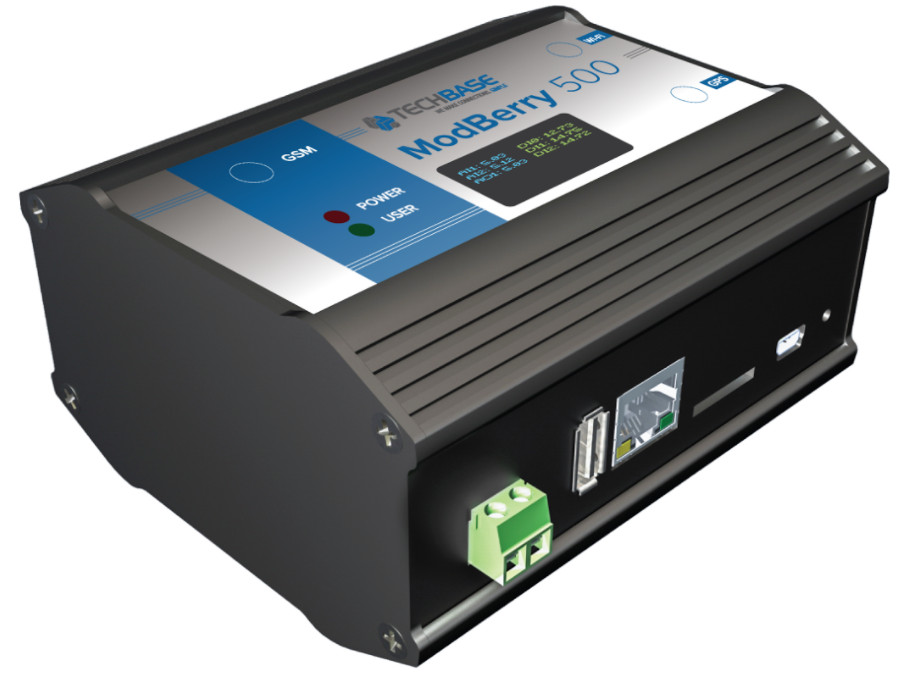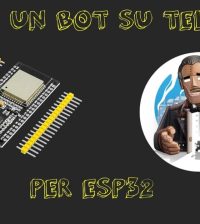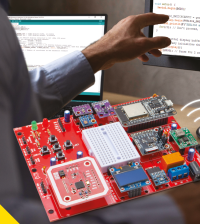- How to Adjust X and Y Axis Scale in Arduino Serial Plotter (No Extra Software Needed)Posted 2 months ago
- Elettronici Entusiasti: Inspiring Makers at Maker Faire Rome 2024Posted 2 months ago
- makeITcircular 2024 content launched – Part of Maker Faire Rome 2024Posted 4 months ago
- Application For Maker Faire Rome 2024: Deadline June 20thPosted 6 months ago
- Building a 3D Digital Clock with ArduinoPosted 10 months ago
- Creating a controller for Minecraft with realistic body movements using ArduinoPosted 11 months ago
- Snowflake with ArduinoPosted 11 months ago
- Holographic Christmas TreePosted 12 months ago
- Segstick: Build Your Own Self-Balancing Vehicle in Just 2 Days with ArduinoPosted 12 months ago
- ZSWatch: An Open-Source Smartwatch Project Based on the Zephyr Operating SystemPosted 1 year ago
ModBerry 500: Raspberry Pi CM3 based automation controller adds ESP32

Techbase announced several enhancements to its Linux-driven ModBerry family of automation controllers, which are based on a variety of open source boards. First, the company is introducing a new version of its ModBerry 500 to add an Espressif ESP32 module as a backup system for its Raspberry Pi Compute Module 3 (CM3) computer-on-module. The Gdansk, Poland based company also announced options that can be added to other ModBerry models, including a more expandable aluminum case, an OLED display, and a supercapacitor battery backup system.
The new, unnamed version of the ModBerry 500 combines the existing 1.2GHz, quad-A53 Raspberry Pi CM3 module with Espressif’s open source, WiFi and Bluetooth enabled ESP32 SoC, essentially combining the abilities of the ModBerry 500 and Techbase’s lower end Moduino controller. Last month, the ESP32-equipped Moduino, which is available in X1 and larger X2 models, was updated with M-Bus and M-Bus Wireless support.
Espressif’s open source ESP32 SoC design updates its original ESP8266 SoC with a faster MCU and enhanced wireless capability. Like the ESP8266 and ESP8285, the ESP32 supports either standalone operation, typically using a real-time operating system like FreeRTOS or Zephyr, or configuration as a slave device, for example as a subsystem incorporated into an Arduino board.
The ESP32 integrates a 150Mbps HT40 (40MHz channel width) 2.4GHz WiFi radio, as well as dual-mode Bluetooth 4.2 with classic and LE (low energy) support. The ModBerry 500 already includes WiFi and Bluetooth, along with optional 3G, LTE, ZigBee, and GPS. However, in the new CM3/ESP32 mashup, it appears that the ESP32’s radios can work independently. If the ModBerry experiences power or wireless loss or some other failure, the ESP32 can step in and take over. The ESP32 can last much longer on battery power than the CM3, and it offers extended sleep modes.
Many other options are available for the ModBerry 500, just take a look here!
















